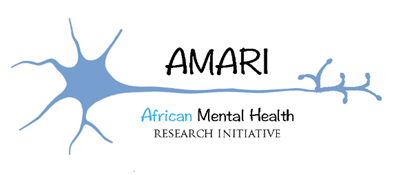COVID-19 Psychological effects
By Debra Machando, AMARI PhD Fellow
The COVID-19 pandemic has brought about fear, anxiety, depression and uncertainty due to the increasing infections and negative effects of the lockdown period. This is particularly worse for people in the health care service, in quarantine and lockdown period as they experience risk of infection, uncertainty, loss of income and potential abuse. People are also bombarded with COVID-19 related information, most of which is of a catastrophic nature. It is critical to equip large numbers of cadres to respond to the psychosocial needs of the nation at large.
Common responses towards the COVID pandemic:
Fear of losing livelihoods,
Not being able to work during isolation, those working fear being dismissed from work
Falling ill and dying
Fear of being socially excluded
Fear of being placed in quarantine because of being associated with the suspected cases
Feeling powerless in protecting loved ones
Fear of losing loved ones because of the virus
Fear of being separated from loved ones and caregivers due to quarantine regime
Separation of loved ones due to illness and quarantine
Loss of multiple members of a family, community
Loss of essential caregivers
Loss of breadwinners for families
Inability to mourn in traditional ways
How the COVID-19 worsens grief:
Inability to be near the sick person, or to care for them safely
Inability to mourn and bury dead in traditional ways
Families unable to wash the body, or to see and touch the loved one who has died
Stigma and isolation of survivors or family members
Site of death; COVID-19 isolation centre
Suffering when dying
Death or sickness of more than one family member
The survivor’s life situation at the time (financial and work pressures)
Common Grief and distress symptoms
Physical symptoms:
Headache, shaking, tiredness, loss of appetite, aches and pains with no medical basis
Crying, sadness, depressed mood, wailing
Anger and irritability
Hopelessness and helplessness
Worry, insomnia
Grief and shame (for having survived, being unable to help others, for having infected loved ones)
Withdrawn from others, very still or silent
Confused or emotionally numb
Disoriented
Being unable to care for oneself
Impact of fear and rumours (The less information people have, the more rumours spread)
Fear and rumours:
Heightens isolation of people who are grieving and distressed
Worsen protection issues for the vulnerable (e.g., children)
May lead to violence as some people are blamed for causing or spreading the virus
Leads to unnecessary illness and death (rumours about fake, harmful treatments)
People at risk of stigma and discrimination:
Health workers
Body handlers
People who have recovered from COVID-19 and are believed to have immunity
People who test negative for corona and return home
Caregivers of loved ones with covid19
Children of caregivers who have died
Other vulnerable groups e.g living with GBV
Isolation and Loneliness:
In normal circumstances, these people receive comfort and care in their families and communities.
During corona outbreak, they may become isolated, lonely and unable to meet their needs
In worst case, they experience violence

